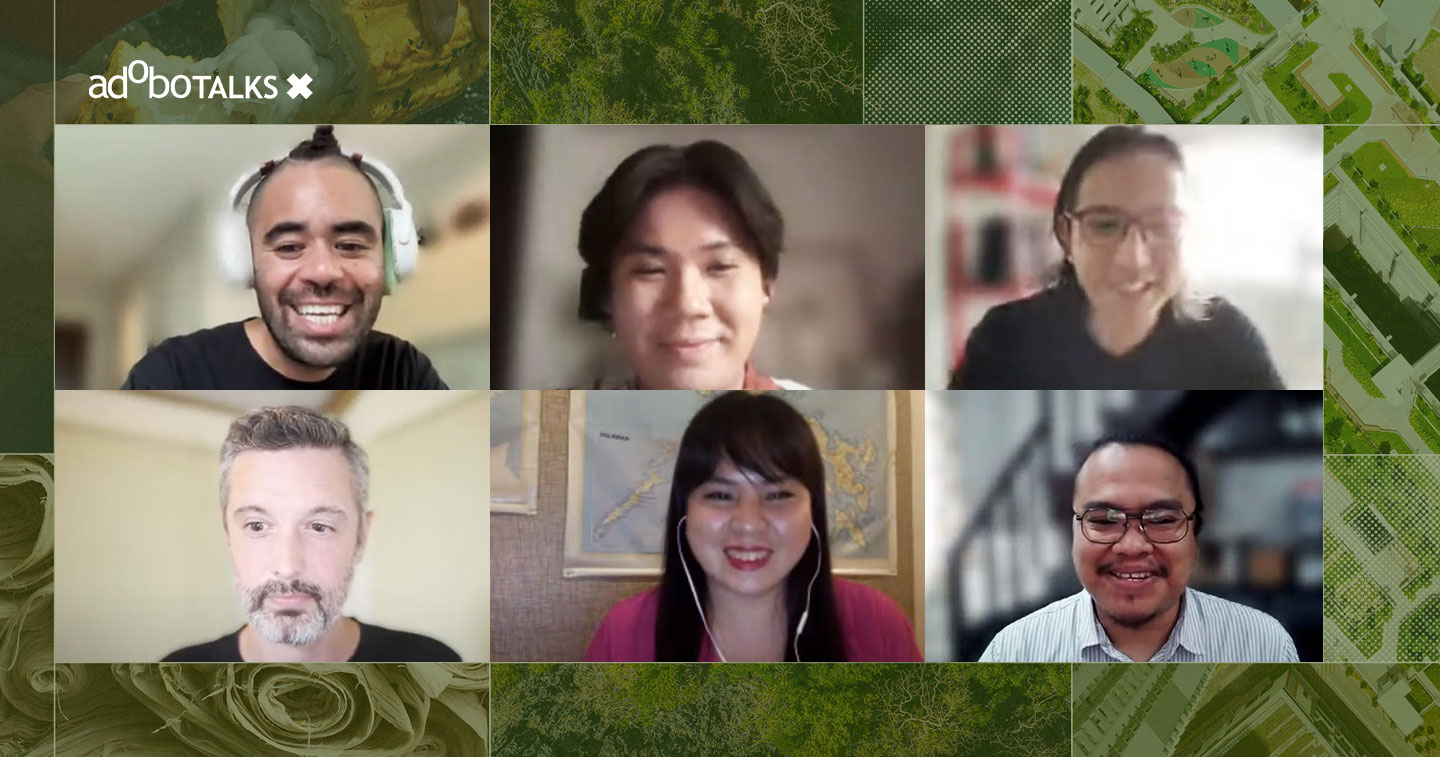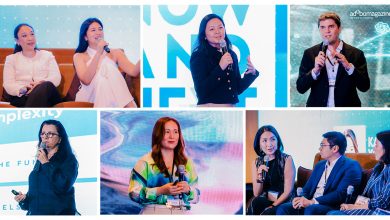MANILA, PHILIPPINES — Given the climate crisis the world is currently facing, a lot of people are now going green and turning 180-degree for more sustainable living. These practices might help but the bigger question is about the root cause: Are the steps businesses are taking systemic enough to make a difference?
In the latest adobo Talks roundtable discussion, leaders from various industries gathered to talk about their brands’ and businesses’ sustainability initiatives — and ones they believed did more than just talk.
Opening the discussion was design thinking firm Tandemic’s Founder and CEO Kal Joffres. For over a decade, he grew his expertise in social innovation. He presented a case study on how design thinking and systemic solutions helped transform Mongolia’s cashmere industry. Cashmere is an environmentally destructive product wherein herders are trapped in a negative cycle where there is pressure to reduce costs in the production of the luxurious textile.
One of the approaches Joffres used to transform the problem in the cashmere industry was to identify the leverage points with cascading effects. Joffres divided the system into three leverage points which include supply-side leverage points that cover the finance for “shifting green” and the cost for pasture land use; demand-side leverage points that cover the quality and sustainability-oriented buyers and incentives for quality and sustainable cashmere; and connecting leverage points that cover digitization of the value chain and the ability of mills to meet quality and sustainable demand.
That alone is a technical way of creating a systemic change but according to Joffres: “We need platforms for collaboration so people can act systemically.” During the panel discussion, Joffres elaborated that supporting collaboration is one of the low-hanging fruits that he sees in terms of opportunities for brands to participate. He said: “Truly, we don’t get a systemic change if we don’t have collaboration but the challenge is that a lot of foundations prefer to reward the people who were pushing the rocks and not the people who were clearing the path.”
From innovation to conservation
Executive Director of Philippine Reef and Rainforest Conservation Foundation Dave Albao talked about his work on Danjugan Island, a 43-hectare wildlife sanctuary located in Cauayan, Negros Occidental. According to him, in-situ conservation “is the work that you’re doing on habitats and species that are thriving or trying to survive the effects of climate change, human development, and plastic pollution.”
Part of his work in in-situ conservation is ensuring that ecosystems such as mangrove forests, seagrass beds, and coral reefs are able to thrive even with the changes in the climate. “If we protect them, we will have a better chance of reducing the amount of greenhouse emissions in the atmosphere,” Albao said.
While Danjugan Island is not a tourism destination exactly, the foundation operates a tourism program wherein a visit to the island will be a direct contribution to the protection of the sanctuary.
“We’re enabling climate actions in community life… we build a community of conservationists… when we do that, we’re able to empower young people, women, and diverse stakeholders because we understand now that protecting wildlife or nature isn’t just about the species and the habitat, but also about the people,” Albao said.
As a foundation, they also support MSMEs towards a more sustainable business.
On retail waste and greenwashing
Pam Mejia is one of the many young entrepreneurs of today’s generation that truly cares about textile waste. She is the founder of Phinix, a social enterprise that collects textile waste from old clothes, households, fabric scraps, and garment factories; offering footwear and accessory products that are trendy, comfortable, durable, sustainable, and limited pieces.
“Phinix products have 90% fewer carbon emissions than regular fashion products,” according to the research done by United Nations, Environment on Phinix on August 2018.
Phinix extends a fashion product’s lifespan through upcycling, while supporting local artisans who have lost their jobs. At last count, Phinix has been able to collect 4,000 kilos of textile from households and factories.
Aside from Phinix, Mejia is working on another social enterprise Phinix Storx that would be able to provide packaging made of paper waste, feather waste, textile waste, and kapok fibers with the aim to reduce plastic waste in online shopping. Future product innovations include canvas bags, paper notebooks, and homeware.
While her social enterprises are good for people and the environment, Mejia admits that greenwashing is very rampant in the fashion industry. She said, “I remember Greta Thunberg, one of the most famous climate activists, she even noted that it seems now that the fashion industry is starting to take responsibly in being more sustainable, using the term sustainable at a cool fashion but the reality is, it’s greenwashing.”
Greenwashing is also one of the most commonly misunderstood topics in the F&B industry, according to Auro Chocolate’s Managing Director Mark Ocampo. He says, “A lot of times when companies have specific projects we’re not talking about longevity; we’re talking about immediate instant gratification type of initiatives which don’t prolong and don’t ultimately make a change when it comes to the communities they’re working with.”
Ocampo added, “If we’re gonna talk sustainability, we have to make sure that it’s truly sustainable and that it completes the holistic cycle wherein you’re not just doing a project to say you’re doing good, but you’re doing a project because you actually want to see change.”
Auro Chocolate is a Philippine-based Filipino tree-to-bar chocolate company that sustainably sourced cacao beans directly from Filipino farmers. With 54 international awards under its belt, the company built its foundation with a purpose and has been supporting thousands of families through their community programs to teach them how to treat their farms into business.
Their community programs include Organic Conversion Program, Intro Choco Traceability, and Crowd Farming Adoption; people are encouraged to adopt a cacao tree from the Philippines and the amount goes into the preservation and maintenance of the farm.
Ocampo said “very much part of our company is really about working with communities and making sure we’re able to have better quality Filipino products while at the same time, treating our farming partners as fair and as good as possible so it’s not only us that grows. We also want our farming partners to grow well with us.”
How does a big business play its part?
While more uprising social enterprises gear up toward sustainable actions, one of the major telecommunication companies in the country aims to play its part. Globe, through their Digital Thumbprint Program, provides digitization and enablement inclusion which also provides care for the environment and for people.
According to Globe’s Senior Manager for Sustainability Miguel Bermundo, the program was created to make sure that their customers are well protected in the digital age. Bermundo said, “These are free workshops… but what’s so interesting about it is over the years, we were able to fine-tune these programs to speak directly and address different digital challenges of the nation.”
The DTP modules cover topics on online security and safety, online responsibility and etiquette, online critical thinking, online leadership and empowerment, and digital fundamentals for parents. The program already reached over a million students and over 50,000 teachers with the help and assistance of more than 200 Globe trainers. Aside from DTP, Bermundo also shared projects including “The Make It Safe” campaign which aims to educate and protect customers against fraud and online dangers, “E-waste Zero” which advocates for responsible e-waste management, and “Camp Kalikasan,” a partnership with WWF.
Watch adobo Talks: Rethinking Nature to Create Systemic Change roundtable here.








